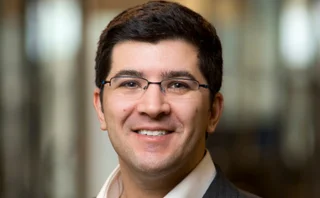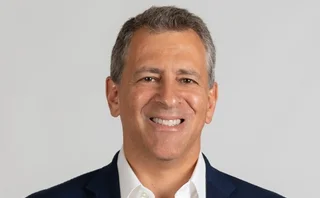
Iron ore house of the year, Asia: Genk Capital
Energy Risk Asia Awards 2019: Proprietary trader provides consistent liquidity during turbulent year for iron ore market

This year was a turbulent one for the iron ore market, with prices buffeted by shocks such as the US-China trade war and a series of mine closures in Brazil, the world’s second-largest iron ore producer. Extreme volatility led to erratic liquidity across multiple venues, both electronic and over-the-counter.
In this challenging environment, Singapore-based Genk Capital, a proprietary trading firm, managed to provide much-needed liquidity and market-making services, even as some of its competitors were widening their market quotes or exiting market-making altogether.
It hasn’t been easy, says Christabel Pang, a trader at Genk Capital. “Being able to provide market liquidity profitably without any natural physical interests has proven to be a real challenge as it has been difficult to establish an accurate and statistically supported direction for the futures market with the myriad of unpredictable supply and demand factors,” she says.
However, Pang points to the firm’s market share in the Singapore Exchange (SGX) iron ore futures contract which, she says, has remained consistently high throughout this period. She attributes this achievement to its strong trading team and the firm’s wide presence across various iron ore trading platforms, from SGX to China’s Dalian Commodity Exchange (DCE) and OTC markets.
The firm entered the nascent iron ore derivatives markets in 2015 in an expansion of its existing commodities trading business. Established in 2010, Genk Capital trades commodities, equities and currencies, mainly in emerging markets.
“We identified the offshore iron ore markets as having a lot of potential due to increasing demand for iron ore in construction,” says Pang. “A lot of brokers were opening up desks and we saw a number of inefficiencies that we could extract value from.” These included discrepancies between exchange and OTC prices, and a lack of price transparency.
In today’s more mature market, many of these inefficiencies no longer exist, so Genk has had to deploy new trading strategies. In particular, it has increased its presence in the onshore China market, capitalising on the DCE’s move in May 2018 to open its iron ore futures to international participation.
“Setting up on the DCE was tough and arbitraging between onshore and offshore iron ore markets is complicated,” says Pang. “It’s impossible to get an exact hedge between DCE and SGX because of contract specification differences.”
In addition to differences in settlement and maturities, the DCE iron ore futures contract is denominated in Chinese yuan (CNY), whereas SGX’s contract trades in US dollars. As a result, Genk Capital had to develop models to manage its foreign exchange risk exposure, something made even more tricky by the US-China trade war, which pummelled the USD/CNY exchange rate.
These challenges deter many offshore market participants from trading the DCE contract, making Genk’s presence across both markets even more valuable, the firm believes.
As we continue to work with a growing number of counterparties, leaning on technology allows us to provide deep liquidity in an efficient manner with competitive pricing
Christabel Pang, Genk Capital
“We have stepped in to bridge these two markets,” Pang says. While this leaves the firm needing to manage forex and basis risk, it also enables the team to “provide fair and competitive prices” to counterparties, says Pang.
Operating in the iron ore markets, especially in the more opaque OTC space, has required a big technological drive, says Pang. The firm has developed algorithmic trading as well as its own automated valuation models for pricing. Both these products have enabled it “to increase volumes traded tremendously”, she says. “As we continue to work with a growing number of counterparties, leaning on technology allows us to provide deep liquidity in an efficient manner with competitive pricing.”
At times, more than half of Genk’s iron ore may be traded algorithmically, but with traders keeping a close eye on the algorithms and screens. “You still need the flexibility and finesse in trading to adapt to market situations,” she cautions. “You never come across the same market twice with every factor aligned as it was before.”
Going forward, Genk Capital is planning to launch a trading screen with the aim of increasing liquidity in the iron ore market. It will display bids and offers all the way along the curve, thereby increasing transparency in the markets. “We hope it will help people in their price discovery efforts, not just in the spot but right out along the curve, where there’s not much liquidity right now,” she says.
As the company continues to grow in profitability, it hopes its efforts to do that will also support the market. “We want the iron ore markets to grow and we want to continue being in them. So when there are bouts of illiquidity, being able to provide liquidity and competitive pricing is something we are proud of,” Pang says.
Only users who have a paid subscription or are part of a corporate subscription are able to print or copy content.
To access these options, along with all other subscription benefits, please contact info@risk.net or view our subscription options here: http://subscriptions.risk.net/subscribe
You are currently unable to print this content. Please contact info@risk.net to find out more.
You are currently unable to copy this content. Please contact info@risk.net to find out more.
Copyright Infopro Digital Limited. All rights reserved.
As outlined in our terms and conditions, https://www.infopro-digital.com/terms-and-conditions/subscriptions/ (point 2.4), printing is limited to a single copy.
If you would like to purchase additional rights please email info@risk.net
Copyright Infopro Digital Limited. All rights reserved.
You may share this content using our article tools. As outlined in our terms and conditions, https://www.infopro-digital.com/terms-and-conditions/subscriptions/ (clause 2.4), an Authorised User may only make one copy of the materials for their own personal use. You must also comply with the restrictions in clause 2.5.
If you would like to purchase additional rights please email info@risk.net
More on Commodities
Energy Risk Asia Awards 2025: The winners
Winning firms showcase the value of prudent risk management amid challenging market conditions
Data and analytics firm of the year: LSEG Data & Analytics
Energy Risk Awards 2025: Firm’s vast datasets and unique analytics deliver actionable insights into energy transition trends
OTC trading platform of the year: AEGIS Markets
Energy Risk Awards 2025: Hedging platform enhances offering to support traders and dealers in unpredictable times
Electricity house of the year: Natixis CIB
Energy Risk Awards 2025: Bank launches raft of innovative deals across entire electricity supply chain
Voluntary carbon markets house of the year: SCB Environmental Markets
Energy Risk Awards 2025: Environmental specialist amplifies its commitment to the VCM
Sustainable fuels house of the year: Anew Climate
Energy Risk awards 2025: Environmental firm guides clients through regulatory flux
Weather house of the year: Parameter Climate
Energy Risk Awards 2025: Advisory firm takes unique approach to scale weather derivatives markets
Hedging advisory firm of the year: AEGIS Hedging
Energy Risk Awards 2025: Advisory firm’s advanced tech offers clients enhanced clarity in volatile times








